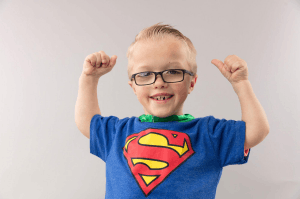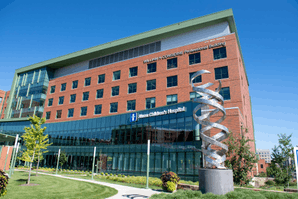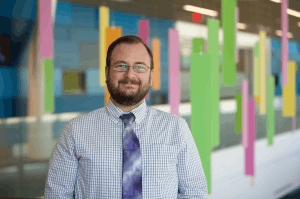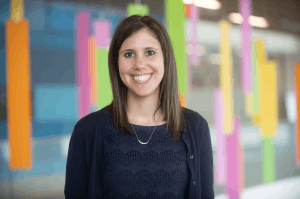Skeletal Dysplasia Center

Skeletal dysplasia refers to a group of disorders that impact the growth and development of bone. This leads to a number of health-related issues with one of the most common being that of dwarfism. The Skeletal Dysplasia Center offers comprehensive and patient-centered care to address the wide variety of needs associated with these disorders.
Learn more...About Skeletal Dysplasia Center
We have been caring for children and adults affected by skeletal dysplasia for decades. During appointments, you will meet with each member of our team, including:
- Our geneticist and nurse practitioner, who manage your child’s ongoing medical concerns and wellness issues. They also monitor bone density, lab work, growth and development, as well as adaptive function and emotional health. Additionally, they coordinate care among the treatment team, which includes your referring primary care provider.
- Our pediatric orthopedic surgeon, who will assess your child's bones, joints and spine as needed. When corrective action is needed due to bone growth problems, our surgeons are experienced in the latest surgical techniques needed to maximize function and independence.
- Our licensed genetic counselor, who will discuss genetic testing to determine your child's diagnosis, how skeletal dysplasia can run in families, and options for genetic testing for future pregnancies and other family members.
- Our clinical nurse coordinator, who keeps track of everything. This individual coordinates referrals, handles paperwork and is available by phone when families need us. She serves as the one-stop contact person for our families.
Skeletal Dysplasia Center
Akron Children's Skeletal Dysplasia Center, AkronConsidine Professional Building
215 West Bowery Street
Level 7
Akron, Ohio 44308
Fax: 330-543-7649
Map & directions
More about this location...
Hours
Appointments: 330-543-4030
In one convenient visit, families can expect to meet with each of the above providers. Our multidisciplinary team provides diagnostic and therapeutic services that include:
- Orthopedic surgeons with specialized training in order to manage children & adults
- Spine issues
- Club feet and lower limb issues
- Hand and upper limb issues
- Orthotics (bracing)
- Complex-care pediatrician
- Genetic counseling
- Clinical nurse coordinator
- Pediatric neurology / neurosurgery
- Medical and surgical issues of the eyes
- Urology
- Cardiology
- Endocrinology
- Pulmonary medicine
- Gastroenterology
- Physical & occupational therapy
- Nutrition / dietitian services
- Speech and hearing
- Social services
Genetic counseling is an important component of our center. Due to the complexity of inheritance associated with skeletal dysplasia, we place great value on educating families. The field of genetics is complex, so we take the time to explain dominant and recessive inheritance, how the form of skeletal dysplasia in a given family is transmitted and who in the family has the chance to pass on the skeletal dysplasia in upcoming generations. For instance when recessive genes are involved, parents of average stature have the possibility to pass on a form of skeletal dysplasia to their children. Depending on the genetics, some siblings who are unaffected may carry a genetic change that could impact their children. All this is to say we want families to have and understand all relevant information so that they can make informed decisions.
Conditions and Treatments:
Achondroplasia, chondrodysplasia punctata, diastrophic dysplasia, dwarfism, Ellis-van Creveld syndrome, hypochondroplasia, Marfan syndrome, metaphyseal chondrodysplasia, mucopolysaccharidoses, multiple epiphyseal dysplasia, pseudoachondroplasia, skeletal dysplasia, spondyloepiphyseal dysplasia, spondylometaphyseal dysplasia


















